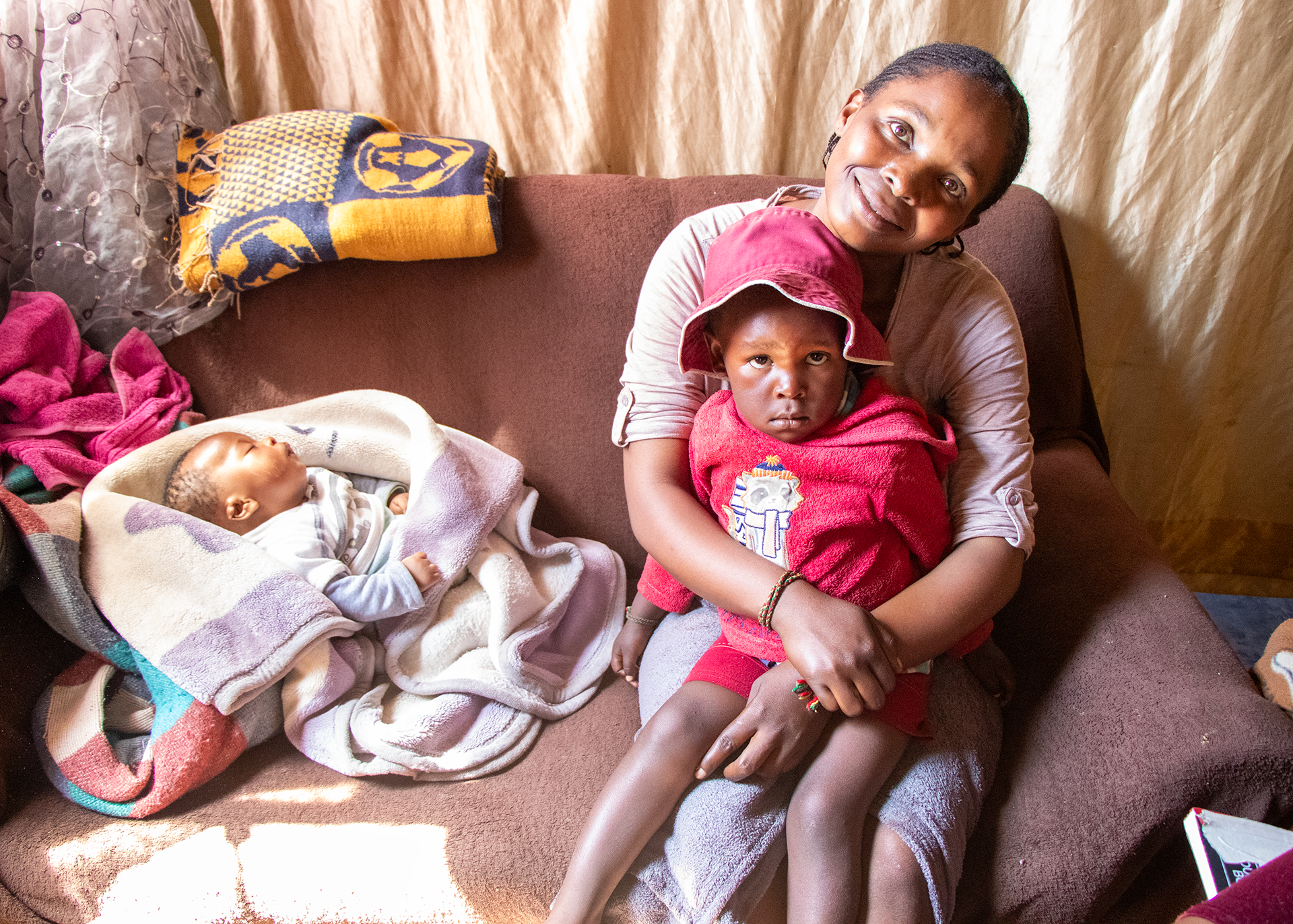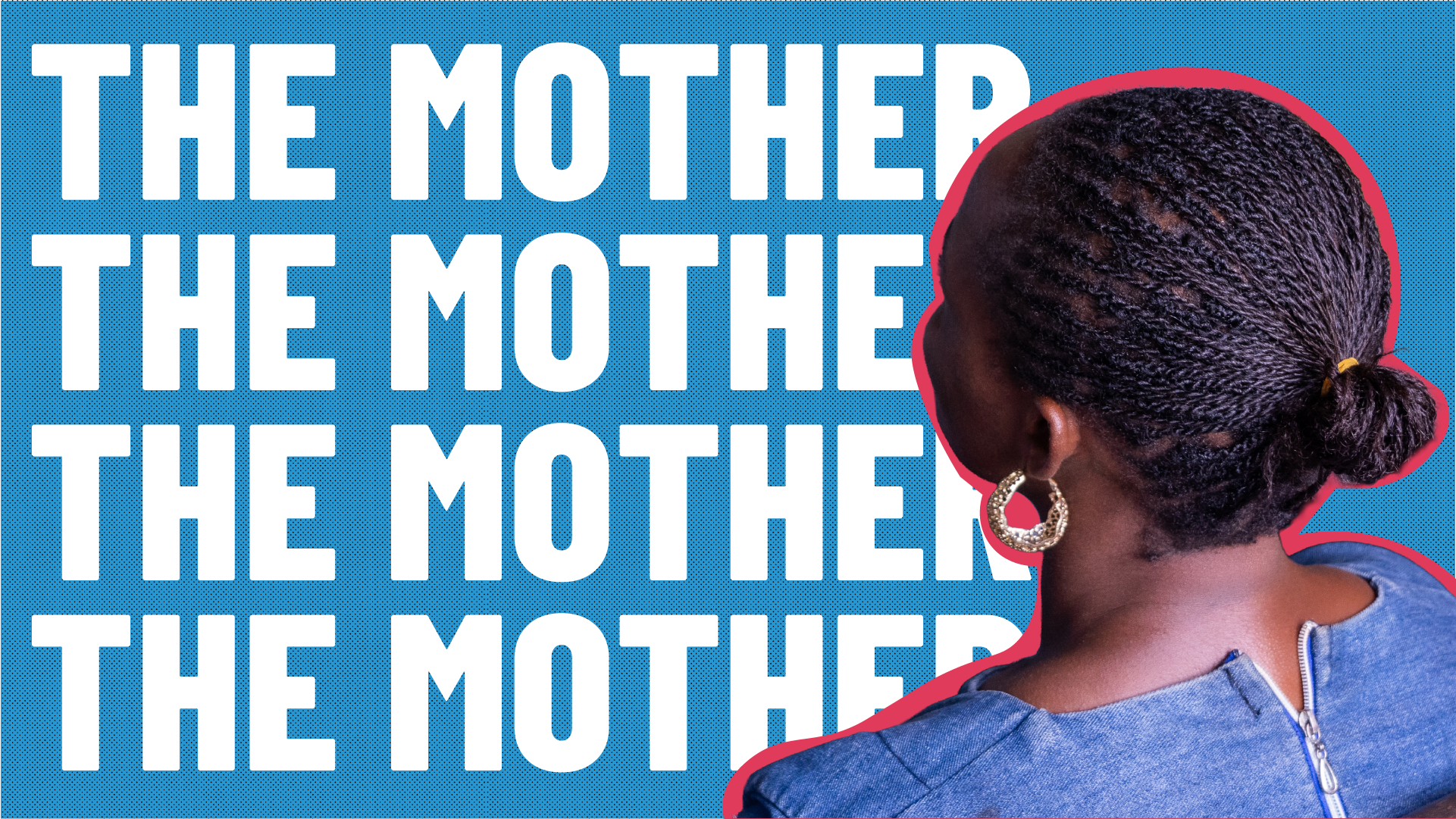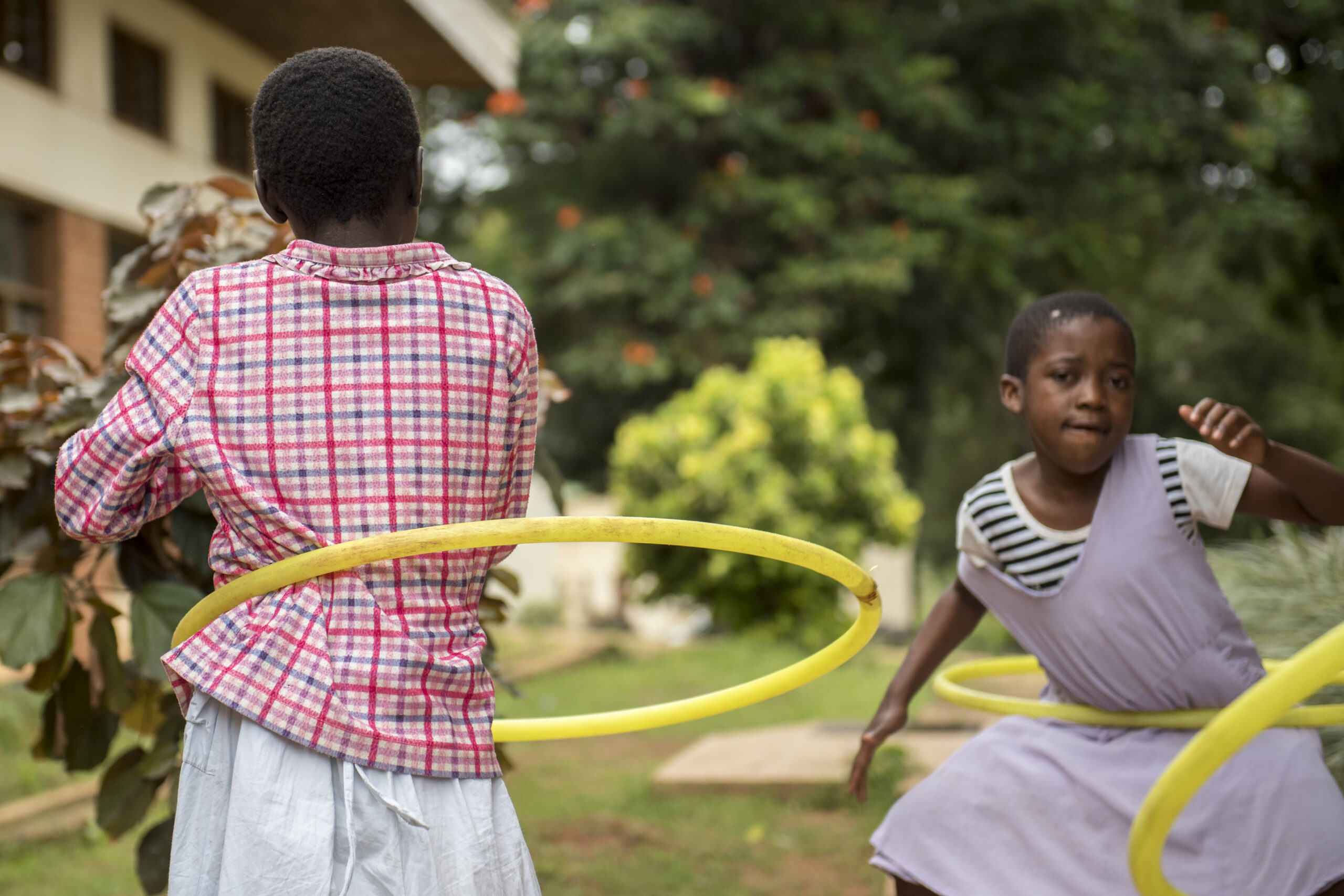Makananelo Maboka, a 25-year-old mother of two children, has not always had an easy life. From Ha Mofoka in Jerusalema village, Lesotho, she was raised by her grandmother. When she was in grade 9 her granny passed away leaving her without a caretaker. She dropped out of school to take care of herself and take on the responsibilities of an adult.
Makananelo began building a life and welcomed her first son. But economic opportunities were limited. She decided to move to South Africa with her son to find work. Only when arrived in South Africa, did realize that she was pregnant with her second child. She came back to Lesotho and started Antenatal Clinic when she was six months pregnant.
At the clinic she was tested for HIV and was shocked to find out that, she was positive.
“I was scared to disclose my status to my partner, but I agreed to enroll on Antiretroviral Therapy (ART),” she said. “When I arrived home, I tried to take my medication but when my partner asked what the medication for, I stopped and hide them.”
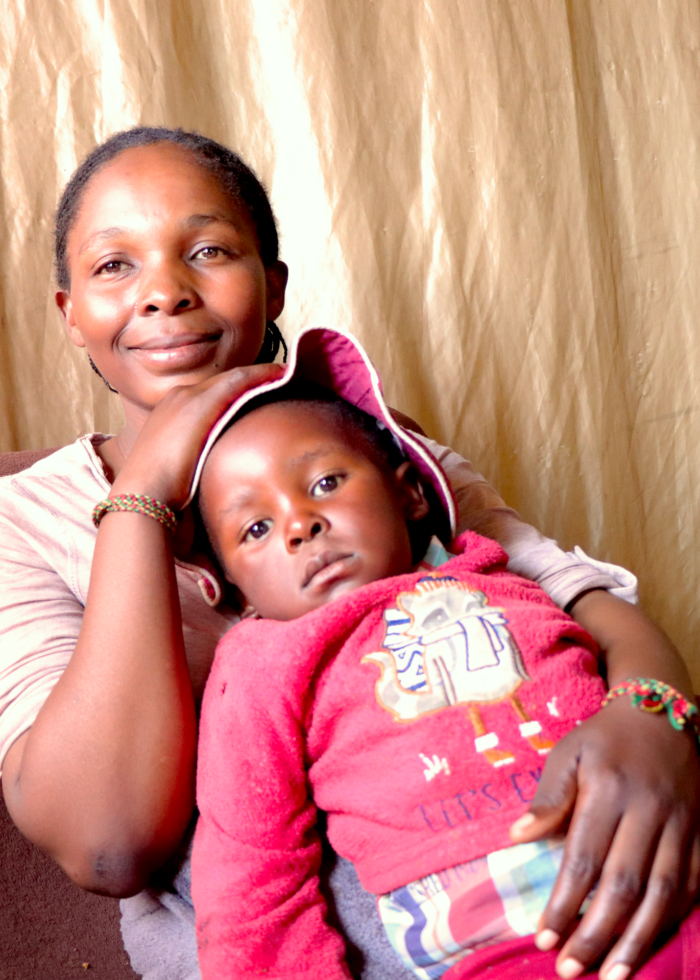
The Risk of Hiding
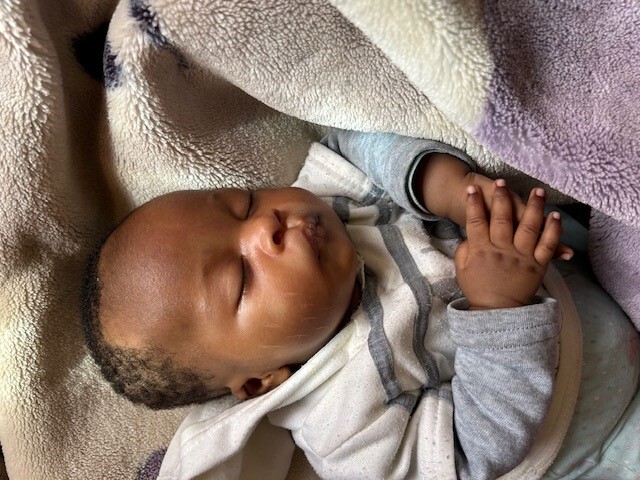
When Makananelo visited Mofoka Health Center for her baby’s six-week check-up, she was tested for viral load. Viral load testing helps monitor the amount of HIV in a person’s body and determine the treatment success. If it is high means treatment is not taken correctly, if it is low viral load, means treatment is taken correctly and it is working.
Her test results showed a high viral load, meaning she was in danger of passing the virus to her newborn baby. She was referred for enhanced counseling session and she was screened for intimate partner violence.
This screening is part of a collaboration with Ministry of Health (MoH) and EGPAF integrated gender-based violence (GBV) services within HIV programs. All people living with HIV are screened for intimate partner violence to identify any form of violence for appropriate interventions to ensure treatment adherence and viral suppression as well as access to HIV prevention.
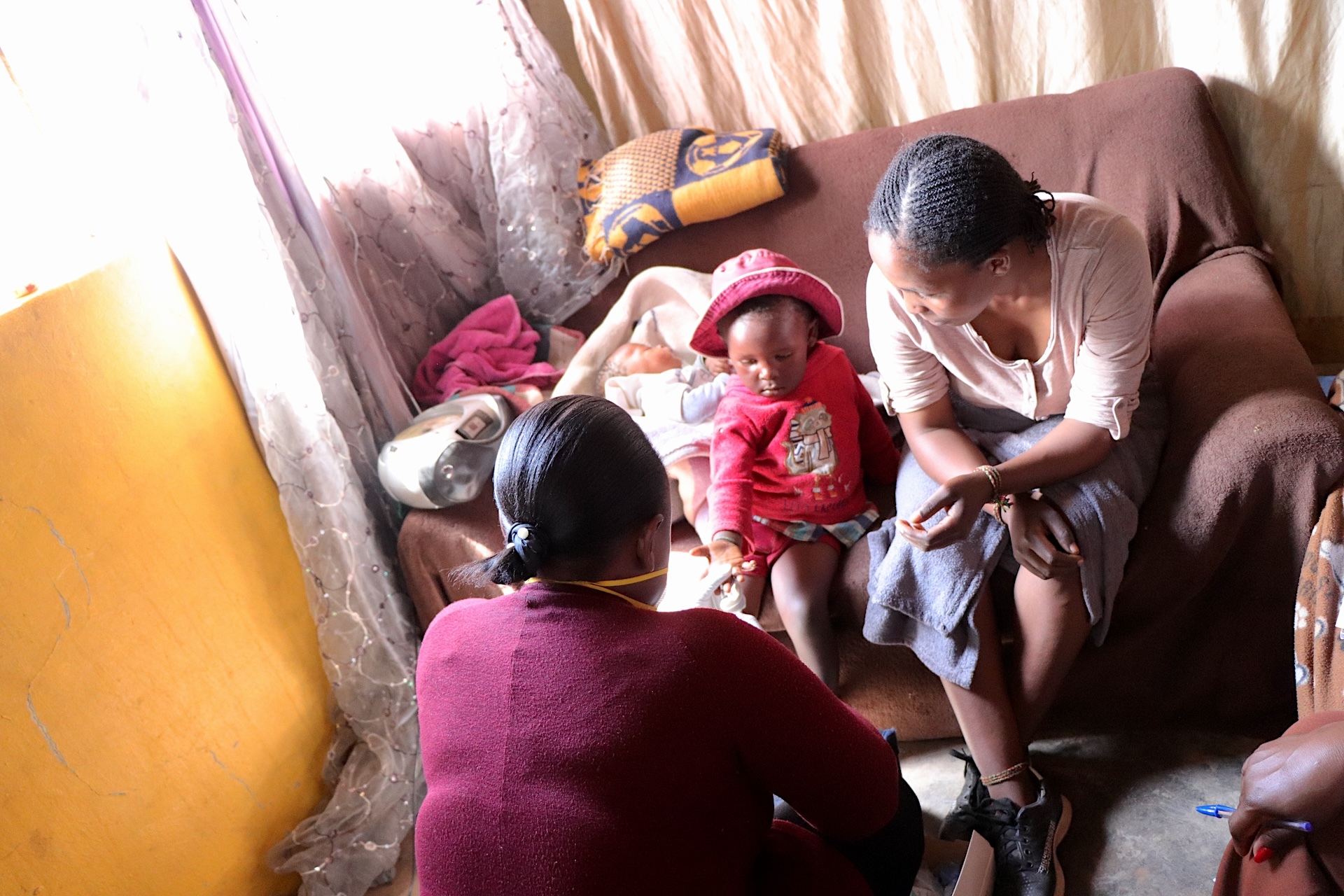
“During counseling, I found that Makananelo had not disclosed her HIV status to her partner and that she is scared to take her ARVs treatment.” said the lay counsellor Moliehi Koeshe.
“She said her partner is a traditional healer and does not believe in taking ARVs. In addition, she was once beaten by him until she miscarried now, she is scared to trigger him in fear of her life. I referred her to EGPAF psychologist for further assistance.”
A Breakthrough with Family Counseling and Assisted HIV Disclosure
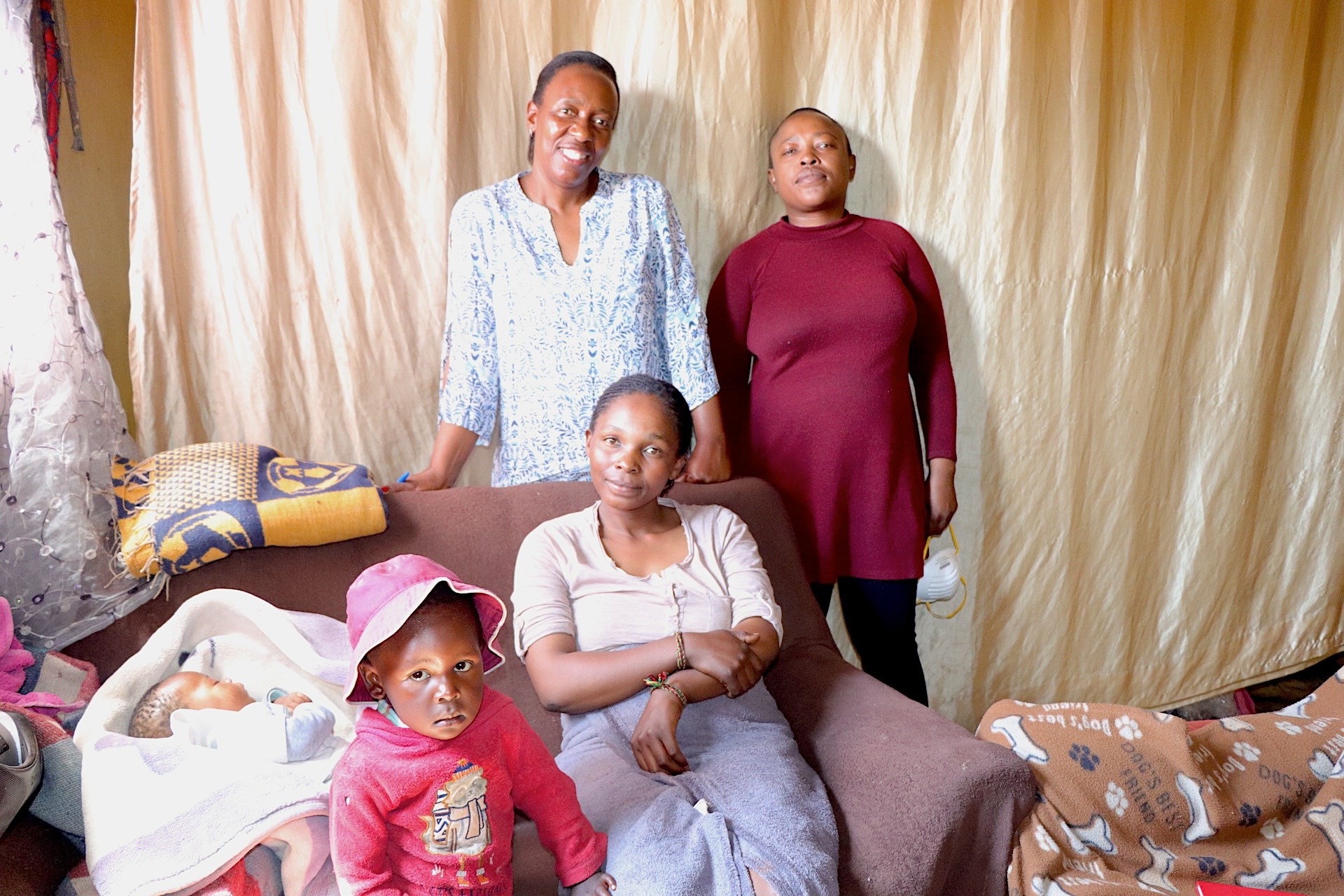
The EGPAF psychologist arranged for household visit with the lay counselor to conduct family counseling with Makananelo and her partner. Then she assisted Makananelo to disclose her HIV status to her partner.
Her partner shared that he was also tested HIV positive before, but he is traditionalist and therefore does not believe in taking ARVs. The psychologist listened thoughtfully but encouraged him to respect the rights of mother and baby to access life-saving medication.
“Since disclosure, I am now free to take my daily ARVs treatment and my partner is always reminding me to take my daily medication,” Makananelo said.
A Healthy Baby and Healthy Mother
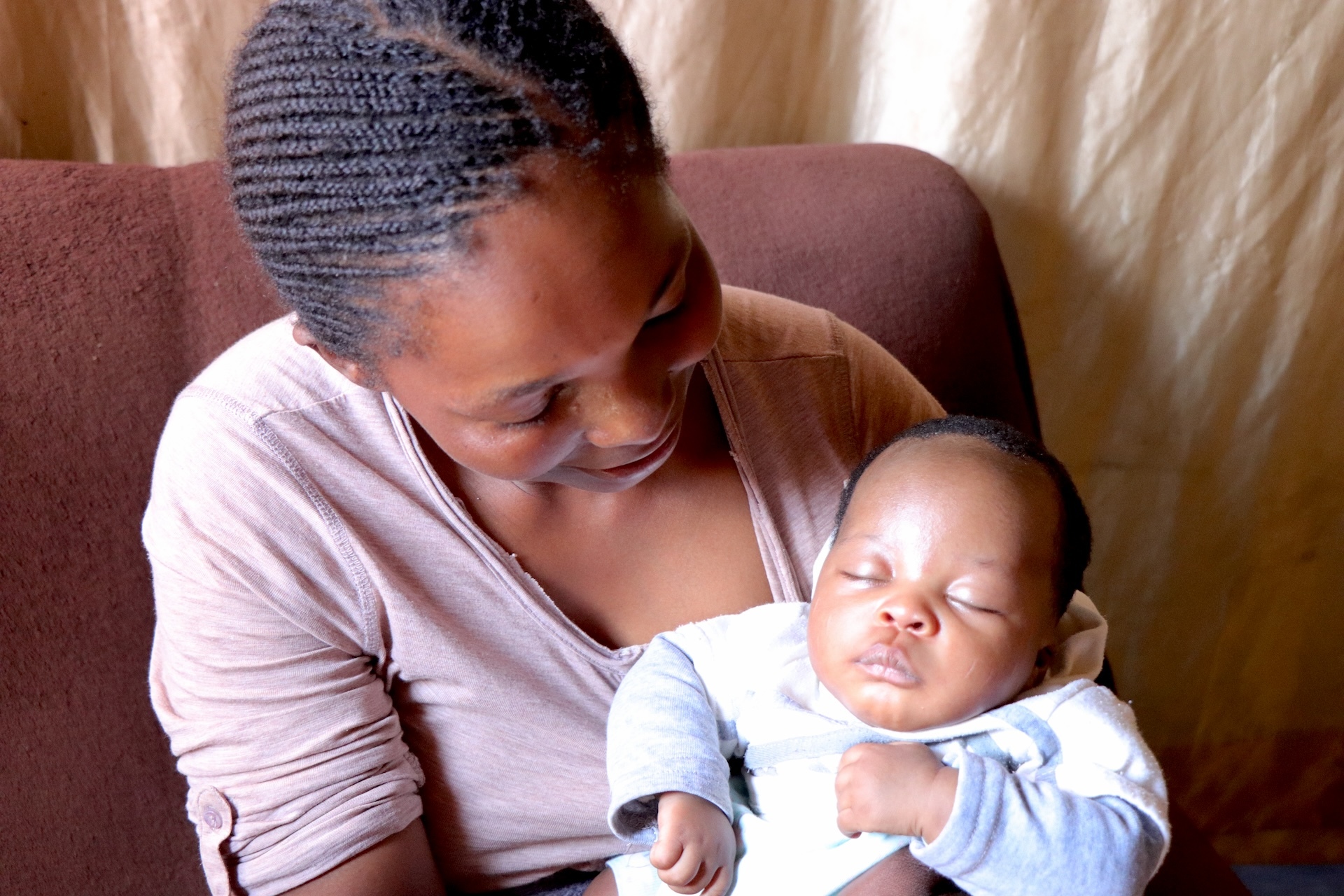
Makananelo’s baby was placed on medication since birth to protect from HIV transmission during breastfeeding. When mothers and their babies have optimal treatment, they can reduce the risk of HIV transmission to less than 1%.
“My biggest fear was to transmit HIV to my breastfeeding baby who is now only two months because I choose to exclusively breastfeed. I cannot afford to buy supplementary baby food,” she said.
Makananelo thanked the lay counselor and psychologist for helping her to disclose her HIV status to her partner. She is now free to access ARVs and protect her newborn baby.
Understanding the Connection Between Gender-based Violence and HIV
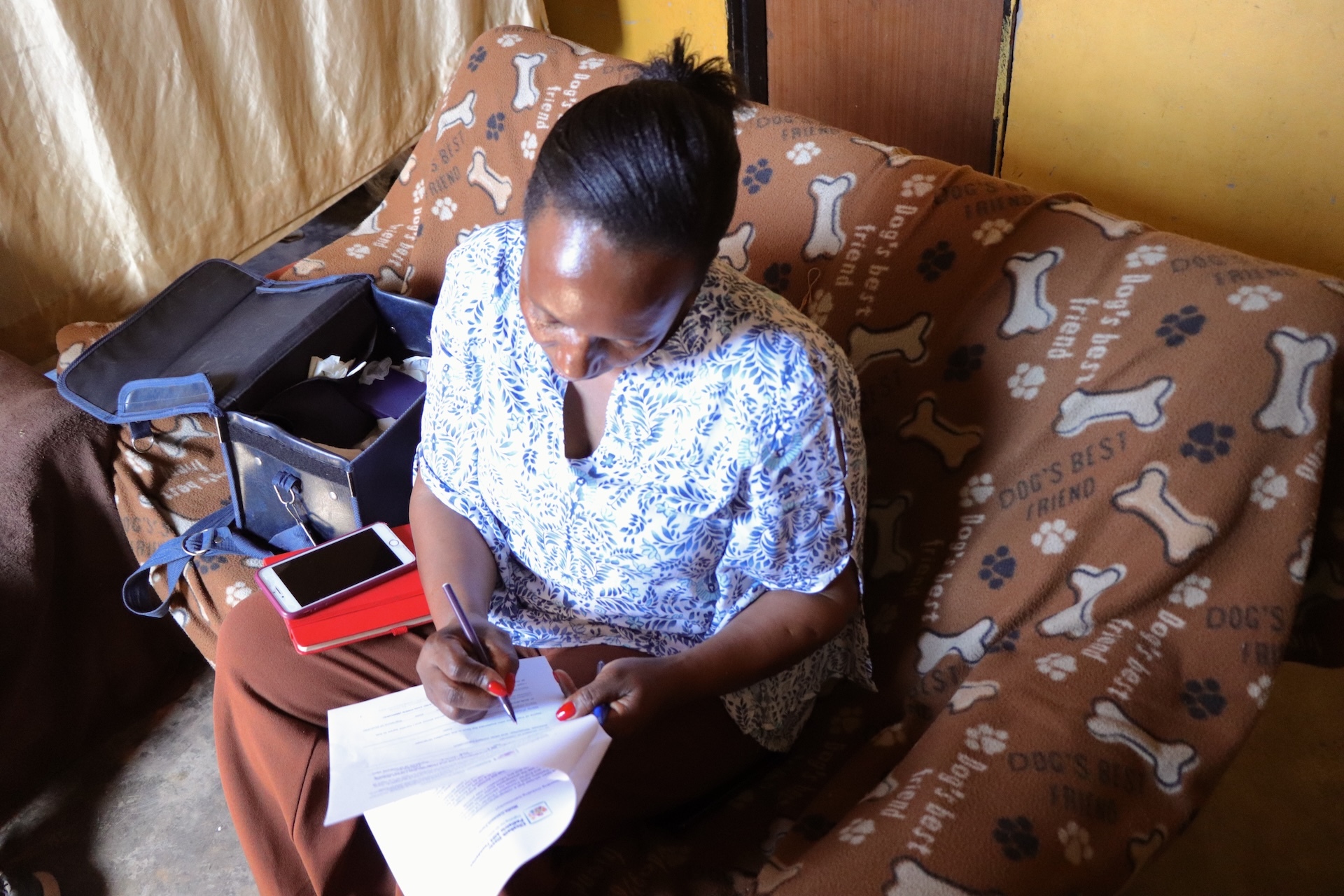
“EGPAF will continue to fight for the rights of mothers living with HIV to ensure their children enjoy their rights to an AIDS-free future,” said psychologist Mme Mamothepane Seleke.
Her training helps her identify GBV even when women do not report it. By talking with mothers like Makananelo, she helps them get the support they need to stay healthy and keep their children healthy.
Every day, young girls and women in sub Saharan Africa confront the gendered nature of the HIV pandemic. GBV has long been cited as a driver of new HIV infections. In fact, in the southern African country of Lesotho, GBV was highlighted as one of the factors that fuels HIV transmission in the national HIV strategic plan.
The HIV incidence rate among adolescent girls and young women is more than three times that among adolescent boys and young men in at least 22 countries in sub-Saharan Africa. – UNAIDS 2024 Data Report
There are multiple forms of GBV namely emotional, physical and sexual violence which include intimate partner violence, but all put adolescent girls and young women at an increased risk of HIV.
Adolescent girls and young women (AGYW) who experience violence may be less likely to negotiate condom use and have a higher risk of acquiring HIV. Women living with HIV may be scared to disclose their HIV status to their intimate partner making it difficult to adhere to their antiretroviral (ARV) treatment.
As an organization dedicated to advocating against inequalities of the vulnerable and creating a world where children, youth and families live free from HIV/AIDS, EGPAF knows the value of integrating GBV screenings into existing HIV services.
EGPAF Lesotho supports MoH to integrate post GBV clinical care services in all supported facilities in order to increase GBV case identification, reporting and linkage to care. The interventions package including HIV testing, treatment and prevention, STI screening and treatment, emergency contraception and family planning, wound care, medical forensic evidence, continuous psychosocial support, and referral to other support systems.
